Prospective Students
Considering Peace from the Perspectives of Japan and the U.S.
Establishing a Bridge of Friendships between Hawai’i and Hiroshima.
On Tuesday, February 21, a special event, "Considering Peace from the Perspectives of Japan and the U.S.: Establishing a Bridge of Friendships between Hawai’i and Hiroshima," was held in the "Communicative English" class taught by Professor Yuko Uesugi. The eight-member delegation from the Matsunaga Institute for Peace at the University of Hawai’i at Manoa visited Eikei University of Hiroshima and had a very meaningful international exchange event to learn about peace in English from both Japanese and American perspectives. The visiting group consisted of two faculty members, four students, and two alumni.
The representative of the University of Hawai’i at Manoa, Mr. Jose Barzola, and Professor Uesugi have been planning this event since last December. Since this January, they have been deepening their friendship and exchanges through online talk sessions with the students who are scheduled to visit Japan in each lesson as a part of their preparation before they meet in person.
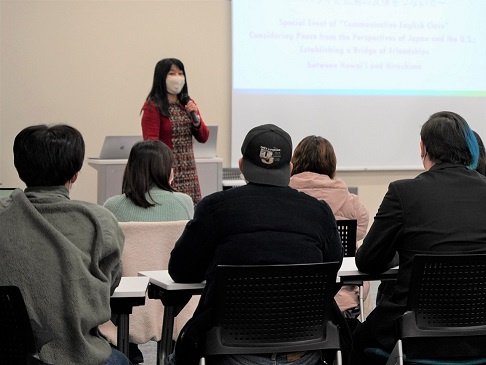
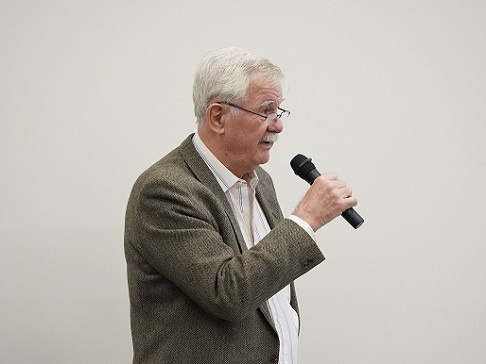
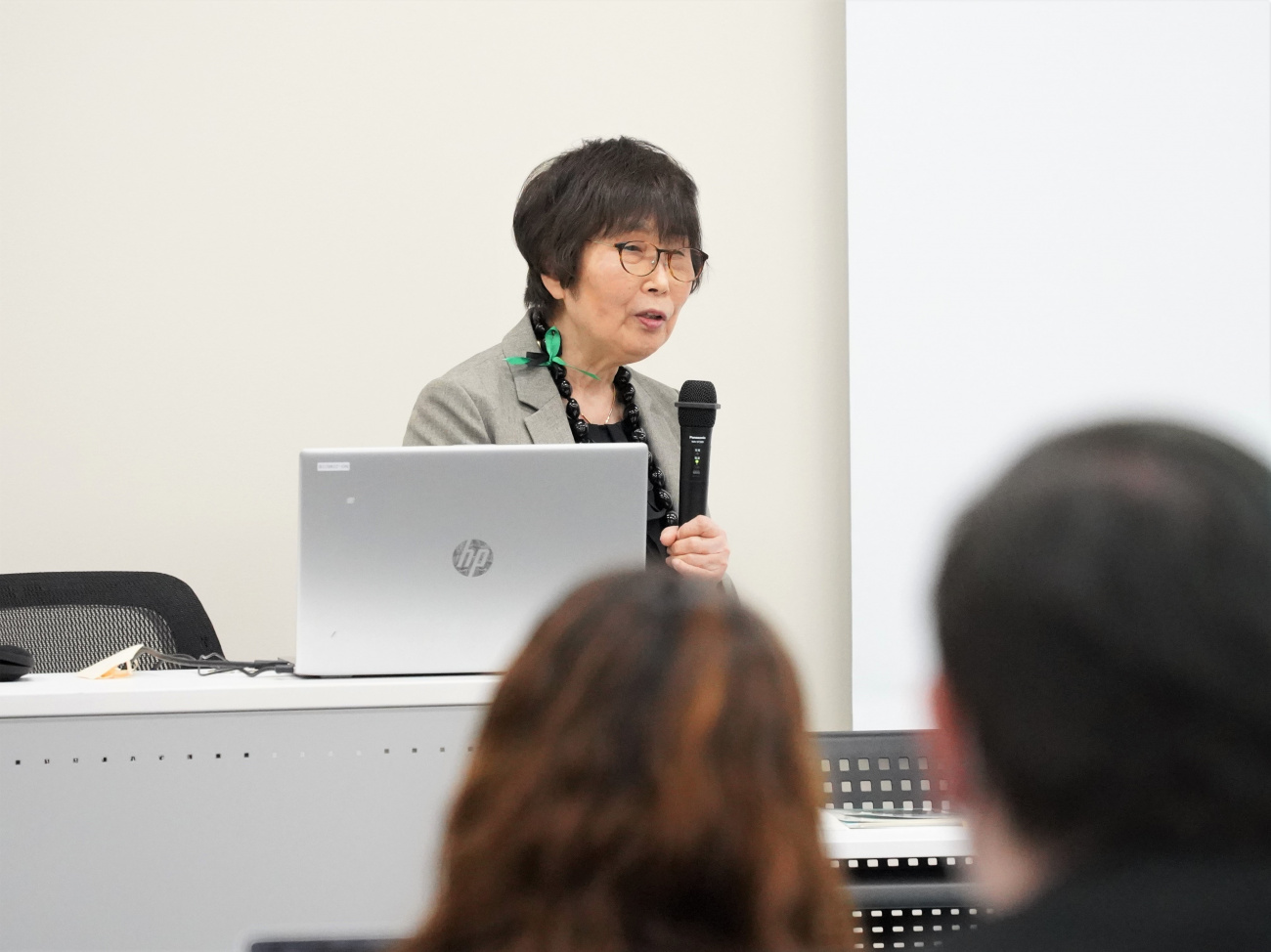
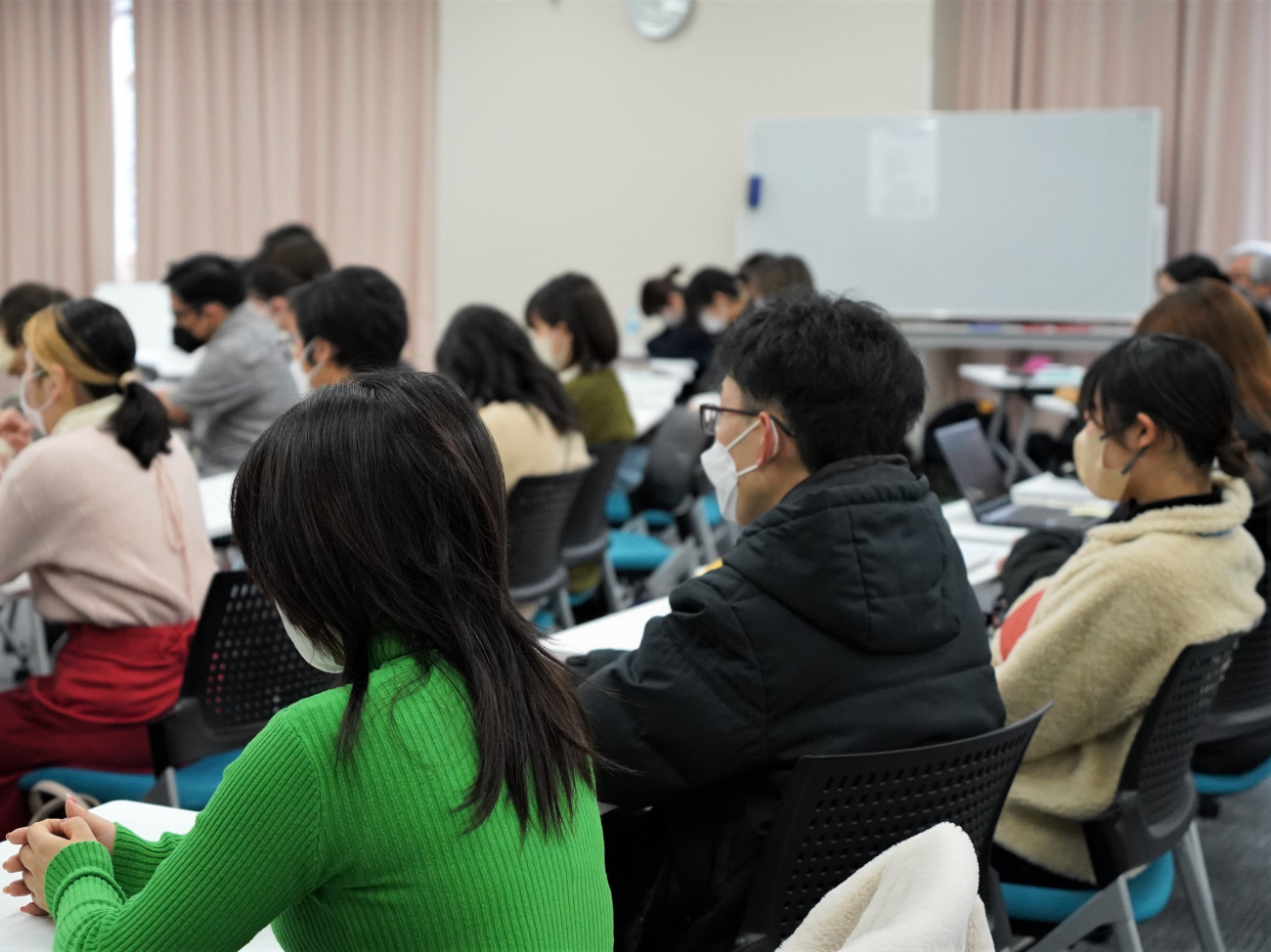
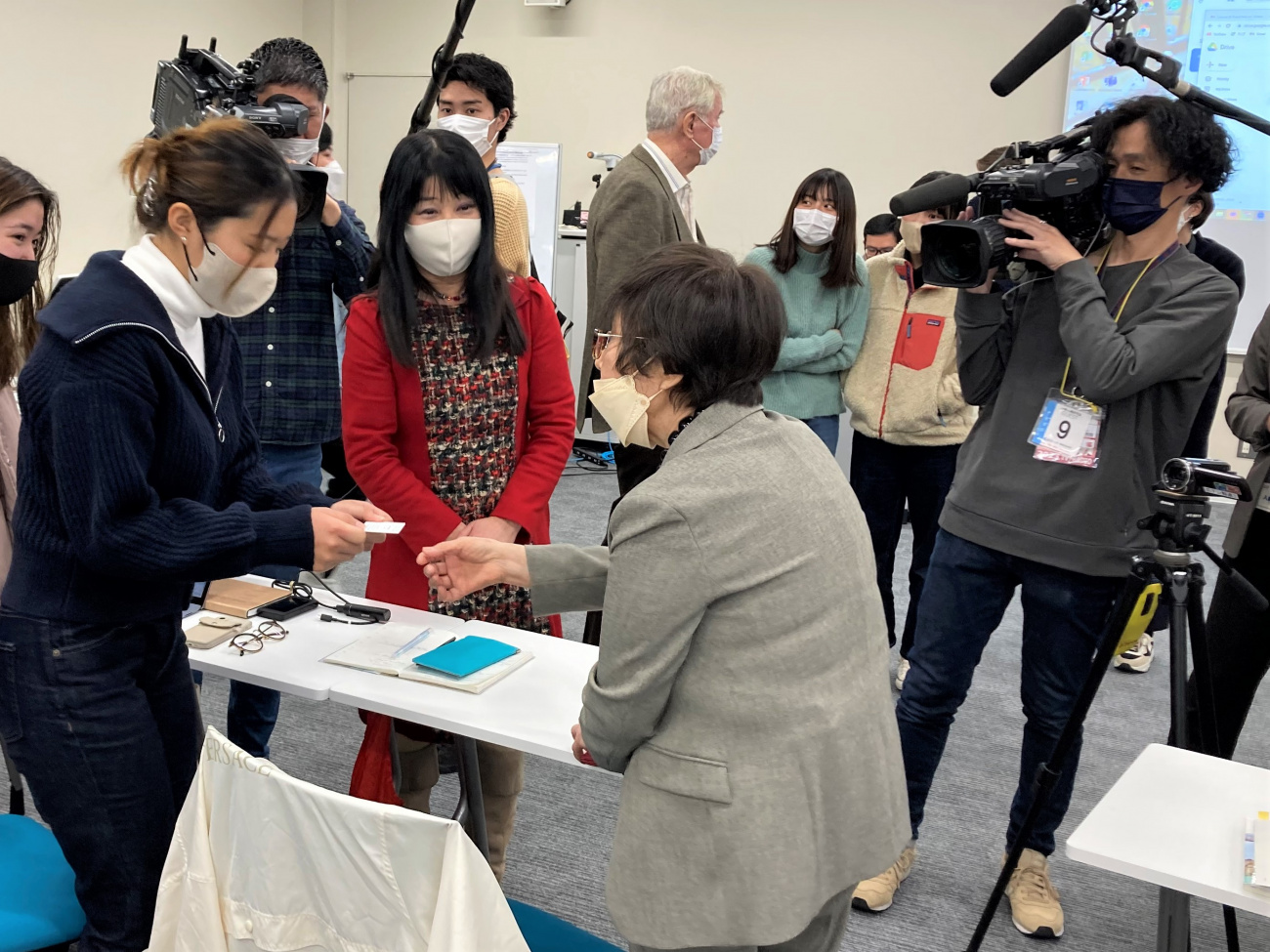
After opening remarks by Professor Uesugi, Director of the International Affairs Center, the event started with a peace-building presentation by the students from the University of Hawai’i.
There were two invited keynote speakers. First, Professor Brien Hallett, a specialist in peace studies at the University of Hawai’i, gave a keynote lecture on the atomic bomb, war, and peace from an American perspective. In his lecture titled "Saving Lives and Stopping Wars," Professor Hallett critically examined the "myth" that the atomic bombings ended the war against Japan and saved many lives.
Next, upon the delegation’s request, Ms. Keiko Ogura, an A-bomb survivor and renowned storyteller, was invited to give a keynote speech. In her lecture titled "What I Saw on August 6, 1945," Ms. Ogura spoke of the horror and trauma she experienced and the discrimination she suffered afterward, with a gentle tone but with painful and sad feelings. The devastation of the atomic bombing came vividly to life in front of the audience through Ms. Ogura's heartfelt words. In closing, Ms. Ogura sent a warm message to the students, "I hope you will build a peaceful society and create a future where nuclear weapons will never be used again.”
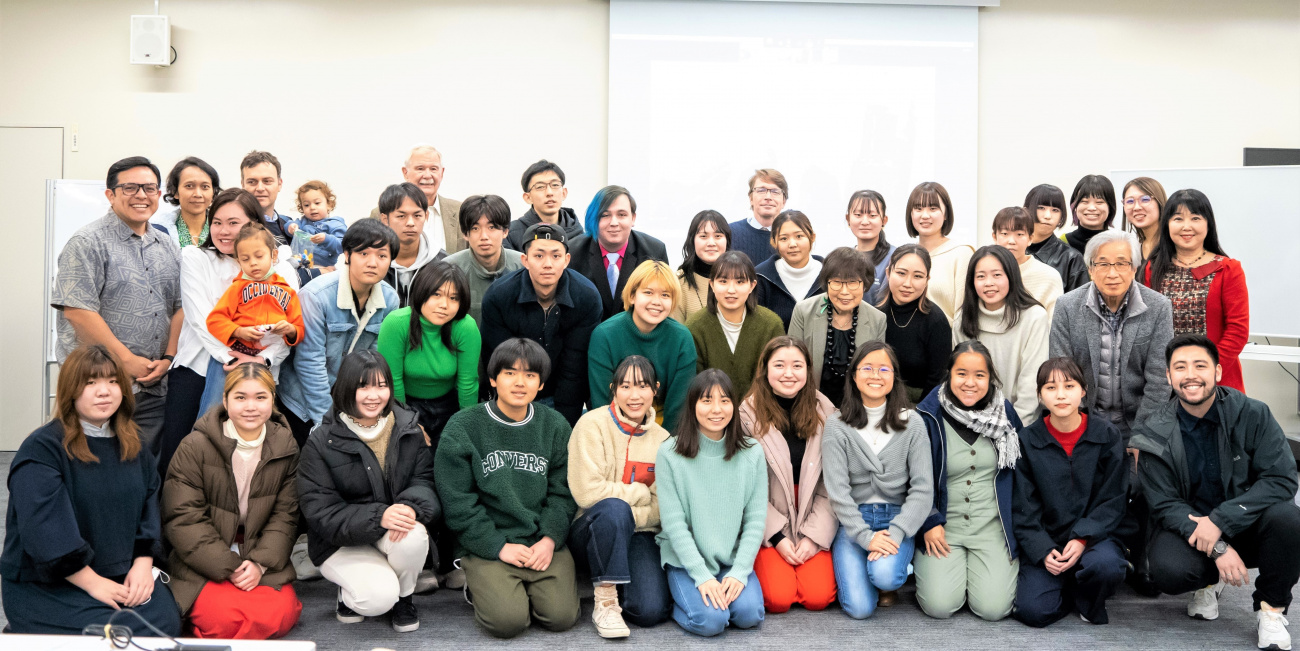
After the lectures, some students rushed to Ms. Ogura and Mr. Hallett, actively asking them burning questions. It was a very valuable experience for the students, who will be responsible for the future of our society, to think about peace from different perspectives in Japan and the U.S., exchange opinions, share their thoughts, and renew their ideas about peace.
Then, all watched the video " "Sakura & Pearls: Healing from World War II" (subtitles in Japanese/English),” originally produced by the Matsunaga Institute for Peace, and learned about the testimonies of citizens who witnessed the attack on Pearl Harbor.
After the whole morning session, our volunteer students and the visiting group from Hawai’i went out to eat “okonomiyaki” nearby and deepened our friendship. The following day on Wednesday, Feb. 22, some volunteer students from the class took the Hawai’ian delegation to Miyajima, where they listened to a very special lecture by the abbot of Daisho-in Temple. The students had researched the Peace Park and Miyajima in advance as an assignment of this class since Jan. to show the group around Hiroshima in English to serve as an informed local tour guide, which they succeeded with great hospitality. The friendship between the Hawai’ian and Eikei students undoubtedly deepened even more as they enjoyed their time together.
There is no doubt that this was a significant event that will improve the students' English proficiency and cross-cultural understanding, with peace education as the key.
It was an unforgettable two-day event that made us realize once again that the connections between people expand to international understanding and that cross-cultural understanding is human understanding.
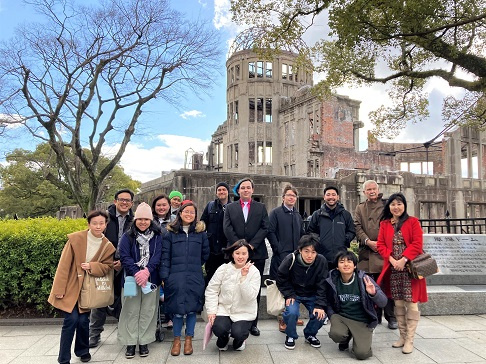
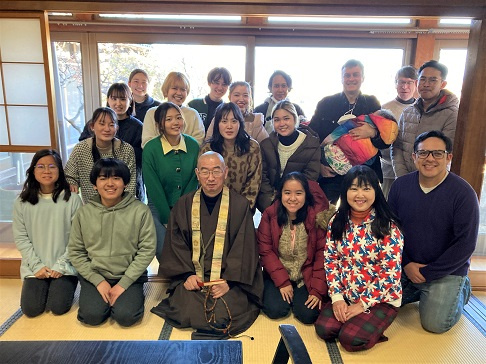
Other News
-
04/10/2024
Admission Systems
Study in Japan Fair 2024 on May 11
-
04/04/2024
2024年度春季入学式を挙行しました / 2024 Matriculation Ceremony
-
11/01/2023
Student Application Guidelines for the 2nd window
-
10/17/2023
Report on the 1st Eikei Student Festival! ~Day 2~




